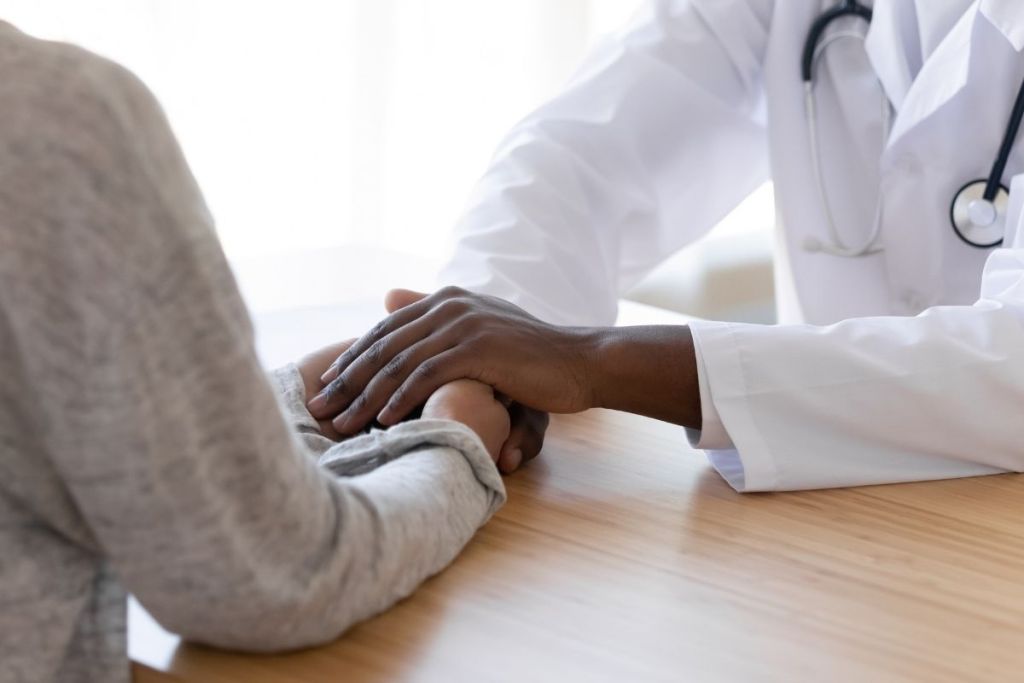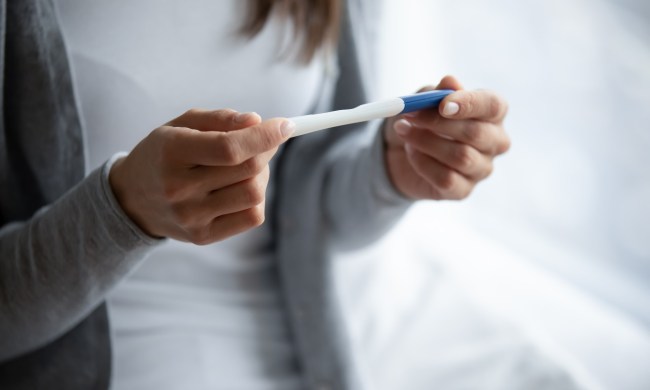Miscarriage doesn’t just have an emotional impact on a person, but a physical one too. Some people may be mentally ready to try to get pregnant before they are physically ready. One in five pregnancies ends in miscarriage, but it’s not often announced widely. These losses can happen up until the 20th week of pregnancy (after that, they are considered a stillbirth), and while the physical and emotional toll can be very different in the first trimester versus the second trimester, the grief of losing a pregnancy is something to be worked through no matter how many weeks along you were.
Pregnancy after miscarriage can almost feel taboo, given the gravity of it all, but pregnancy after a miscarriage can bring many families a wide array of emotions. How long do you have to wait before trying again, and how long should you wait? Does having a miscarriage increase your risk of another one, and can your previous miscarriage affect your new pregnancy? We’ll answer your questions.
What causes a miscarriage?

A miscarriage is defined as a pregnancy loss before 20 weeks. As we stated above, about 20% of pregnancies end in miscarriage, although it’s thought that number may actually be higher since some people miscarry without knowing they are actually pregnant.
Abnormal chromosomes are credited as the cause of at least 50% of pregnancy loss, while health problems such as infections, diseases like diabetes that aren’t controlled, and blood clotting issues can also cause miscarriage. The mother’s age can sometimes be a risk factor, as well as some autoimmune conditions. Sometimes, the cause of miscarriage is unknown.
How soon after a miscarriage can I get pregnant?

It’s possible to ovulate as soon as two weeks after a miscarriage, which means you could get pregnant about two weeks after a miscarriage. Chances of getting pregnant on the cycle right after a miscarriage are actually higher than in another cycle because the uterine lining is thicker from the pregnancy, making it easier for the fertilized egg to implant.
It’s recommended not to have sex for two weeks after a miscarriage to prevent a risk of infection since your cervix is still open during that time, so you shouldn’t try before two weeks.
How soon after a miscarriage should I get pregnant?

A study from the National Institute of Child Health and Human Development in Bethesda, Maryland, published in the journal Obstetrics & Gynecology “supports the hypothesis that there is no physiologic reason for delaying pregnancy attempt after a loss.” However, “whether a couple needs time to heal emotionally after a loss may be dependent on many factors.” The researchers added that “although emotional compared with physical readiness may require individual couple assessment, previous research has found that a speedy new pregnancy and birth of a living child lessen grief among couples who are suffering from a pregnancy loss.”
What does all of that mean? There are both physical and emotional factors to consider. While your body may be ready almost immediately to get pregnant again, waiting until you’re emotionally ready is also important. However, getting pregnant again quickly can also help with the grief of your loss. It’s a very personal decision and journey and could depend on where both you and your partner are in the grieving process and that hard-to-define feeling of readiness to try again.
Is pregnancy after miscarriage safe?

There are a few medical considerations to take into account for your personal situation, but in general, yes, pregnancy after miscarriage is safe. If your miscarriage was “completed” and there is no remaining tissue from the lost pregnancy, you can be physically ready for pregnancy again right away. Those clinical terms can sound harsh for such an emotional loss, but in terms of physical readiness, that’s the situation.
According to the Mayo Clinic, having one miscarriage does not increase your risk of a second miscarriage. “Most women who miscarry go on to have healthy pregnancies after miscarriage. A small number of women — 1 percent — will have repeated miscarriages. The predicted risk of miscarriage in a future pregnancy remains about 20 percent after one miscarriage.” However, if you have had two or more miscarriages, your risk of future miscarriages does increase, and you should talk to a fertility specialist if you haven’t already. If you have experienced two or more miscarriages, it’s recommended you take several tests (blood, chromosomes, ultrasound), but if you have one miscarriage those are not deemed necessary.
Getting pregnant after a miscarriage can be full of conflicting emotions as you remember and continue to grieve the pregnancy that was lost and still rejoice in the new pregnancy. You may also feel scared that you could lose this new pregnancy and have trouble feeling excited. Seeking counseling can be helpful in navigating these complicated feelings. Reach out for support from your partner, friends, and family whenever possible, and remember that it’s OK never to forget the one you lost while still being happy for your new rainbow baby.




